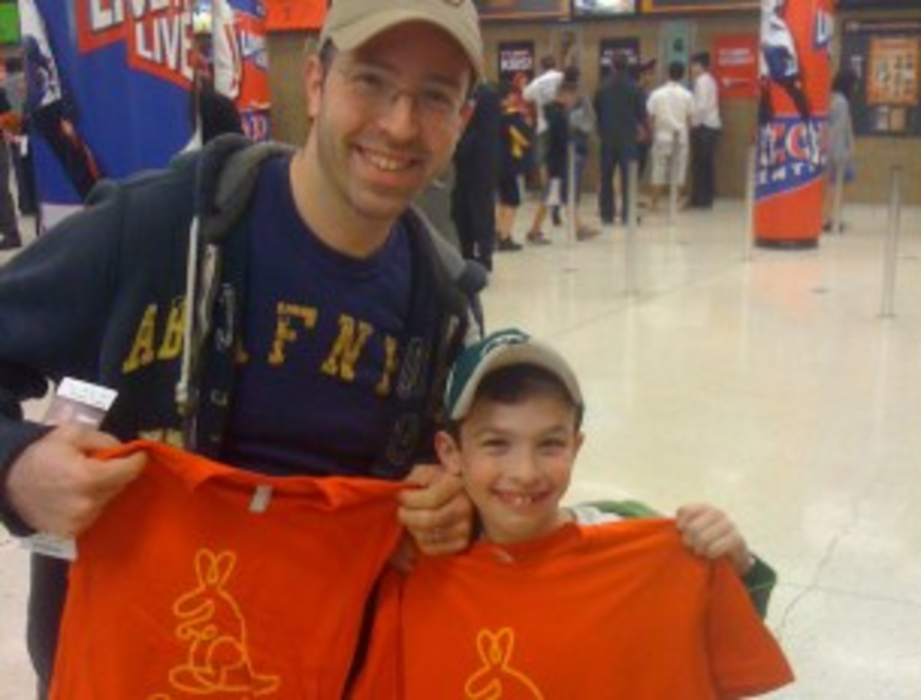A “check-in” through social media sends up a sort of social-status fl are alerting your friends and any hangers-on to not only your whereabouts but also your preferred locales, whether that’s the Barneys Co-Op sale or the corner Starbucks. Marketers hope that consumers will check in for another reason: discounts and preferred treatment.
The Del Mar Racetrack in California hopes that the introduction of Foursquare this summer will help extend its brand among younger audiences that might not have grown up with horse racing. Throughout the season, which runs from July 21 through September 8, the racetrack will reward consumers who check-in at the track. The Foursquare initiative follows other social media efforts by the track to reach a younger and more female audience through new Facebook and Twitter channels.
“Our objective is to convert online communities into real track attendees,” says Craig Dado, senior VP of marketing at the Del Mar Thoroughbred Club. “It is easy to say that you like something on Facebook, but it is another thing to come in and contribute to the business.”
Marketers with physical locations are especially finding that promotions in these networks help drive in-store traffic and build loyalty. “The value in location-based technologies is that it allows people to connect in real-time in a real location,” says Sarah Glass, analyst at Forrester Research. “It is one thing to update your status at home. But it is another thing to do it at the event or while in a store.”
According to recent Forrester research, a mere 1% of online adults in the US are using location-basedsocial networks once a week and 4% have used these networks at least once. “Foursquare has two million users, which is great, but you have to remember that Facebook has 500 million users,” says Glass.
For those marketers trying to reach a younger audience, though, these types of networks might make sense. Forrester found that 85% of these consumers are under 40.
The Del Mar Racetrack promoted the Foursquare effort on its website, through e-mail, within Facebook and Twitter and with on-track signage. People who check-in to the Del Mar Racetrack three or more times get two free passes. Foursquare mayors, consumers that check in very frequently, receive a paddock tour and get to watch a race from the Winner’s Circle. Del Mar Racetrack reported 1,558 check-ins by 1,174 unique visitors by mid-August.
Another sport enterprise, the New Jersey Nets, chose Gowalla as its location-marketing partner. The basketball club, which plans to move to Brooklyn soon, worked with social media agency VaynerMedia on a promotion to give away free tickets to their games to New York and New Jersey residents who have checked in to sports bars in the New York area. In March, the basketball club hid 250 pairs of tickets for a game within 50 different locations for Gowalla users to find as they checked in. Once the user accepted the virtual ticket, they shared their e-mail address to get more information.
“Marketing based on location adds a whole lot of context and targeting to experience,” says AJ Vaynerchuk, cofounder of VaynerMedia. “An advertisement on a sports website might get tuned out amid other content, but if you give something away to someone who checks in to a sports bar, you have their complete and utter focus.”
The winners picked up their tickets at the game where they received special T-shirts that helped to identify them at the event. “We were able to see the people who took advantage of the promotion because they wore the T-shirts, and we saw them carrying food and purchasing merchandise,” says Laura Castronovo, director, research and strategic marketing for the Nets. “Also, we created an experience that they might like to repeat.”
Social geolocation by the numbers
The total audience of location-based mobile apps remains small. Forrester Research
recently reported only 1% of Internet-using US adults regularly update these services. Those that do mostly fall between the ages of 19 and 35, are male and have a college degree.
The campaign drove social buzz through Twitter and Facebook and built loyalty by creating a personalized experience for the winners, says Castronovo.
About 15% of those who won tickets through the Gowalla promotion actually attended the game. The Nets consider the initiative a success and plan to release more location-based marketing for this fall.
To help get the word out, the basketball outfit ran a billboard in New York City in July, encouraging people to check-in to the team’s Foursquare page.
Local bars and restaurants, as well as national franchises such as Chili’s Bar & Grill, are also testing location-based marketing. Chili’s kicked off a Foursquare campaign in July giving away free chips and salsa to people who check-in to participating locations of their restaurants. Participating locations are marked on Foursquare with a “special offer” flag whenever a guest is within 200 yards of the restaurant. Chili’s used in-store signage to drive awareness.
“With the rise of Foursquare’s popularity, Chili’s wanted to capitalize on this tool by offering a cutting edge incentive to our tech-savvy guests as a unique way to connect with them,” says Nicole Cochran, marketing director for Chili’s Grill & Bar.
While Chili’s would not disclose how many customers checked in to this offer, Cochran says if the experiment proves successful, it will extend the offer to all of its 450-plus franchise locations and promote it more heavily in social media.
Given the opportunity to expand existing loyalty programs and the immediacy of location-based marketing means that many marketers will continue to experiment with this channel.







